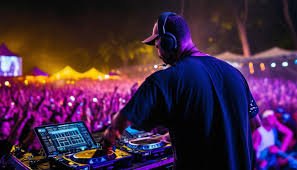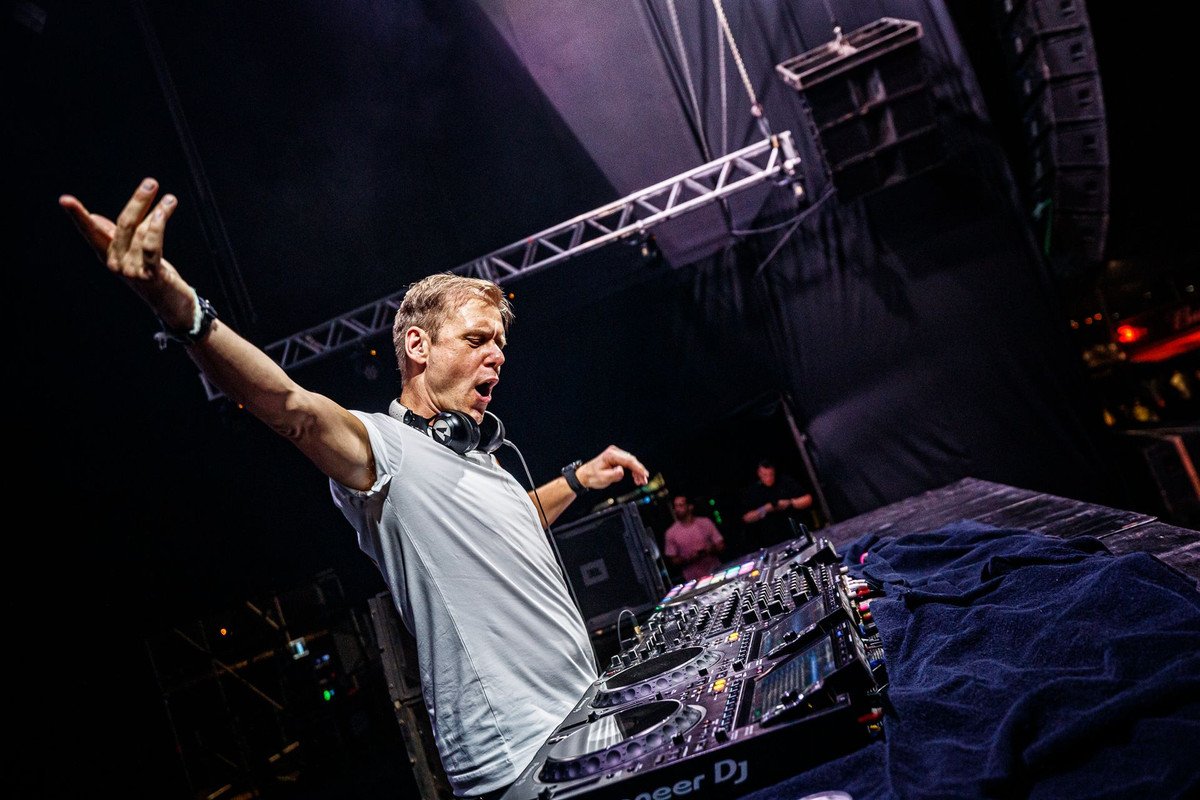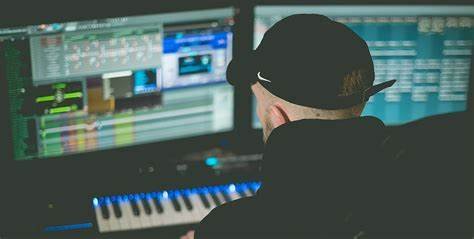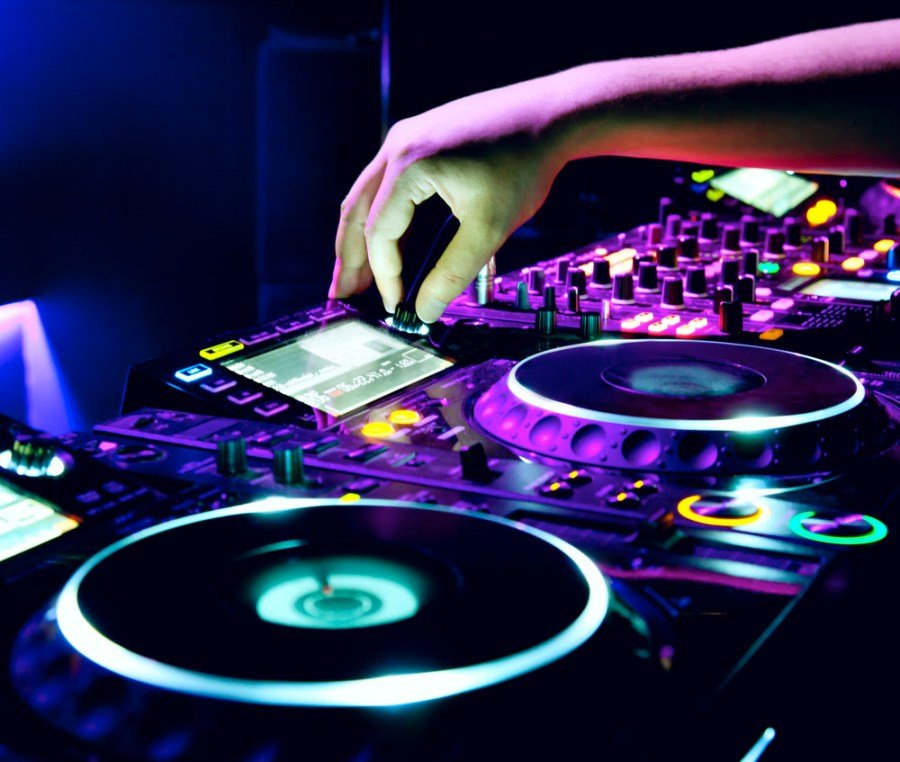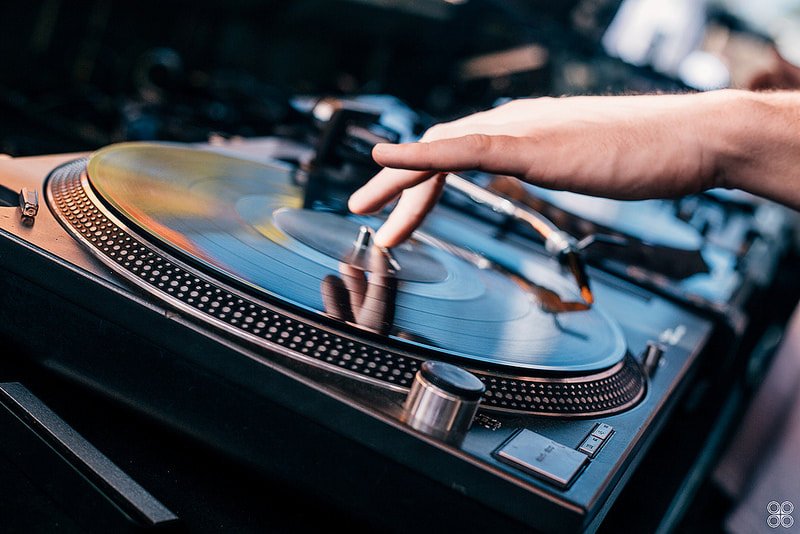DJs have long been at the forefront of music culture, but their role in the modern music scene has evolved dramatically over the years. From playing music at parties to creating entirely new musical experiences, DJs are now central figures in the entertainment industry. In this post, we’ll explore how DJs contribute to modern music culture, their influence on music production, and why they remain essential to the global music landscape.
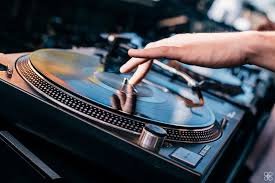
1. Shaping Music Trends and Genres
DJs have a profound impact on the evolution of musical genres. As trendsetters, they often experiment with different styles and sounds, shaping the direction of music culture. In the digital age, where music is more accessible than ever, DJs serve as tastemakers who help introduce new genres to the masses and merge different musical influences to create fresh, exciting sounds.
How DJs Influence Genres:
- Blending Styles: Modern DJs are known for blending genres like electronic, hip-hop, house, and even rock, giving rise to new subgenres like trap, moombahton, and future bass. Their ability to mix and match sounds has resulted in cross-genre collaborations and experimental tracks that redefine traditional boundaries.
- Live Remixing: DJ performances often involve remixing popular songs live, adding personal touches to tracks and re-imagining them for a fresh, audience-specific experience. This constant reinvention is key to keeping music culture dynamic and unpredictable.
DJs as Pioneers:
Many DJs also take on the role of producers, creating original tracks that go on to define entire movements. For example, Calvin Harris and David Guetta began as DJs but have since built careers as prolific producers in their own right, shaping the sound of modern dance music.
2. Building the Festival and Club Scene
One of the most significant ways DJs have influenced modern music culture is through the growth of the global festival and club scene. As music festivals like Tomorrowland, Ultra Music Festival, and Electric Daisy Carnival (EDC) have grown in size and popularity, DJs have become the headliners, drawing huge crowds and setting the tone for these events.
Festivals as Cultural Hubs:
Festivals and clubs have become cultural epicenters where new music is shared, creative collaborations happen, and trends are born. DJs are often at the heart of these experiences, acting as bridges between artists and their audience. Events like Coachella and Burning Man feature top-tier DJs who provide much-needed energy and musical storytelling, turning performances into immersive experiences.
Community Building:
DJs also help build global communities of music lovers. Social media platforms like Instagram, TikTok, and SoundCloud allow DJs to connect with fans, share new tracks, and promote their events. The communal aspect of music culture has expanded, thanks to the online presence of DJs who can reach an audience beyond the physical walls of the club or festival.
3. The DJ as a Live Performer
In modern music culture, DJs are no longer just playing pre-recorded tracks—they are live performers. Through their use of DJ controllers, turntables, and software like Serato or Traktor, DJs now have the tools to manipulate music in real-time, blending beats, effects, and even creating original compositions on the fly. This dynamic interaction with music is a core aspect of the DJ’s artistry.
The Rise of DJ Technology:
The evolution of DJ technology has enabled DJs to perform at the highest level of creativity. With controller-based DJing, the manipulation of tracks is smoother and more intuitive, making it easier for DJs to engage the crowd through spontaneous transitions and live remixes. The inclusion of visual effects, lighting, and interactive stage setups enhances the performance, turning a DJ set into a complete sensory experience.
Storytelling Through Music:
A skilled DJ doesn’t just play songs—they craft a journey. The ability to read the crowd, anticipate energy shifts, and manipulate tempo and mood is what separates great DJs from the rest. This unique storytelling aspect of DJing creates an emotional connection with the audience, making every performance distinct and memorable.
4. DJs as Cultural Influencers
In today’s digital age, DJs are cultural icons who often influence fashion, lifestyle, and social trends. Their reach goes far beyond the music industry, with many DJs becoming trendsetters in the broader entertainment world. Figures like Calvin Harris, Tiesto, and Martin Garrix have not only shaped the music landscape but also built brands that are recognized worldwide.
Impact on Fashion:
DJs have an undeniable influence on fashion. Many DJs are seen as style icons, with their choice of clothing, accessories, and even hairstyles influencing their fans’ style choices. Diplo and A-Trak, for example, are as well-known for their fashion sense as they are for their music.
Social Media Power:
Through social media platforms, DJs can share their personal lives, creative processes, and even political views. Their ability to influence trends is enhanced by their large, dedicated following, giving them a platform to reach millions of people around the world.
5. Pushing Boundaries in Music Production
While DJs are often associated with live performances, they also play a significant role in the production of music. Many top DJs are also talented producers who contribute to the creation of songs that define modern music trends. By experimenting with sound design, collaborating with artists from other genres, and utilizing cutting-edge technology, DJs are at the forefront of music production.
Collaborations Across Genres:
DJs have become crucial in blending various genres, working with artists across pop, hip-hop, rock, and classical music. For example, Zedd’s collaboration with Alessia Cara on “Stay” or Kygo’s partnership with Selena Gomez on “It Ain’t Me” helped bring electronic music into the mainstream, blending it with pop and making it more accessible to a wider audience.
Creating the Sound of Tomorrow:
The best DJs often push the boundaries of production by incorporating experimental sounds, new software, and unconventional techniques. The result is music that sounds fresh, innovative, and exciting. This constant push for creativity ensures that music culture remains ever-evolving, with DJs leading the charge in new directions.
Conclusion
The role of DJs in modern music culture is undeniable. From shaping music genres and trends to creating immersive experiences at festivals and clubs, DJs are at the heart of contemporary music. As live performers, cultural influencers, and producers, DJs are constantly evolving and redefining what it means to be a music artist. In a world where digital technology and live performance blend seamlessly, DJs continue to be the driving force behind music culture, shaping the sounds of today and tomorrow.







